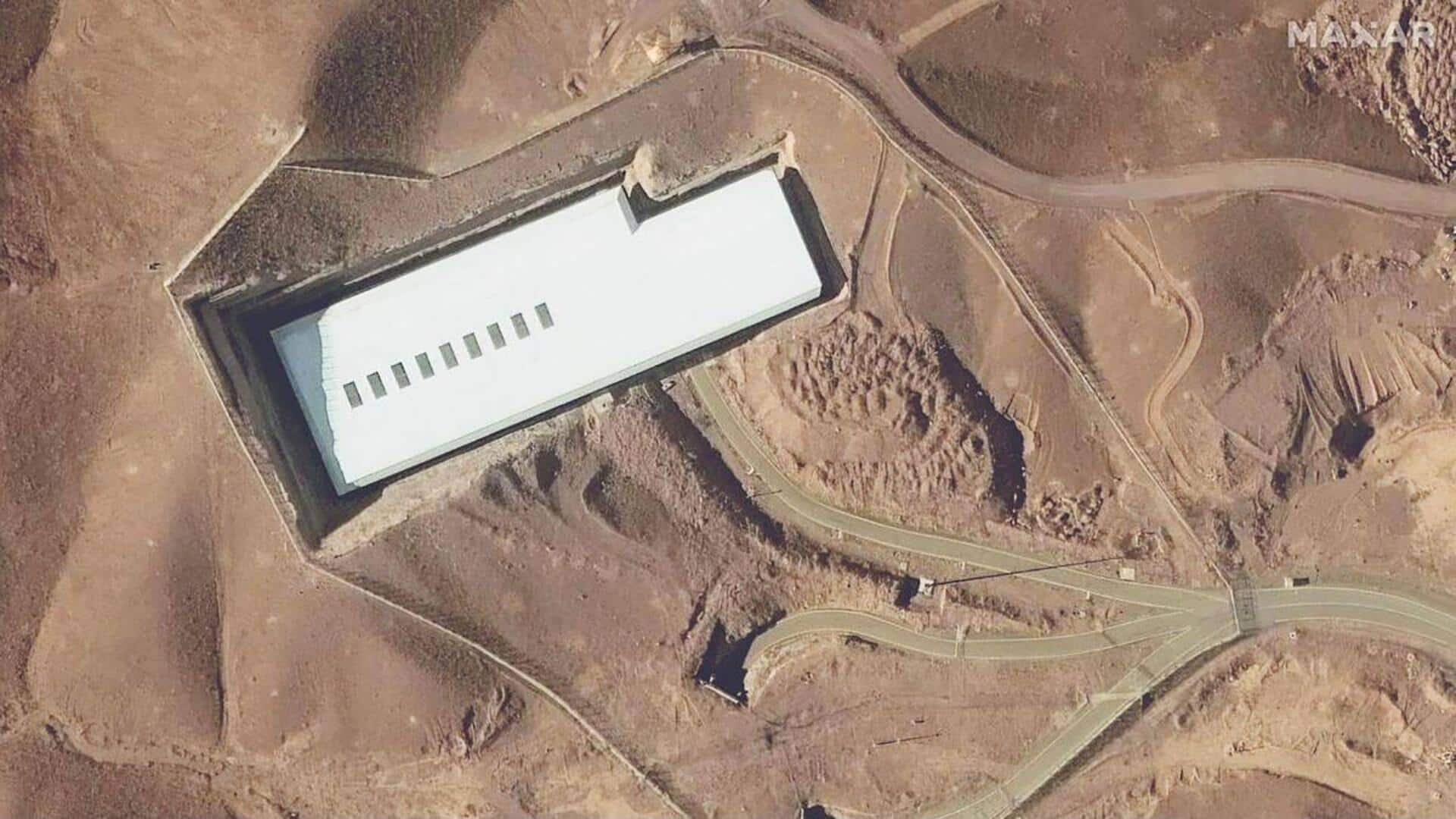
After US, Israel attacks Iran's Fordow nuclear site
What's the story
Israel has reportedly launched an attack on Iran's Fordow nuclear facility, a day after the United States bombed the secretive underground site. The US Air Force had struck Fordow along with Natanz and Isfahan using GBU-57 "bunker buster" bombs and Tomahawk cruise missiles during "Operation Midnight Hammer." While US defense officials are yet to determine the impact of the attack, the International Atomic Energy Agency (IAEA) said "very significant" damage is expected due to the nature of the explosives used.
Escalating conflict
Iran launches missiles at Israel
The reported attack came hours after the Israeli Defense Forces (IDF) carried out airstrikes on at least six airports in Iran. The targeted sites included airfields in western, eastern, and central regions of the country. The IDF said over 15 remotely manned Israeli aircraft were involved in these precision strikes, which damaged runways and underground bunkers. Among the damaged aircraft were F-14, F-5, and AH-1 jets belonging to Iran. The IDF said these planes were intended for use against Israel.
Retaliation promised
Iran vows to retaliate against US
Iranian armed forces chief Abdolrahim Mousavi has vowed revenge for the US strikes, accusing them of violating Iranian sovereignty. He said the "hands of Islam's fighters within the armed forces have been freed to take any action against [US] interests." Ebrahim Zolfaghari, a spokesman for Iran's retaliatory strikes against Israel, said US attacks aimed at "reviving the dying Zionist regime" would instead expand legitimate targets for Iranian forces.
Attack
Sirens also began blaring across Israel
Iran's army announced on Monday that it had launched dozens of one-way drones carrying anti-fortification explosives at Israel. Most of the projectiles fired since the morning hours had reached their targets successfully, it said. Sirens also began blaring across Israel before noon on Monday, with a substantial number of impacts registered in numerous regions, notably the Ashdod area in southern Israel and the Lachish area, south of Jerusalem.
International response
Iran seeks Russia's support at UN
Meanwhile, Iranian Foreign Minister Abbas Araghchi met Russian President Vladimir Putin in Moscow, seeking support against US actions at the UN Security Council. The UNSC held its third meeting on the attacks late Monday, with Secretary-General Antonio Guterres calling for an immediate halt to hostilities. Iranian newspapers covered these events extensively, with ultraconservative Keyhan reporting on missile attacks and reformist Ham-Mihan depicting a demonic image of Trump over his "bullying diplomacy."